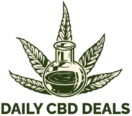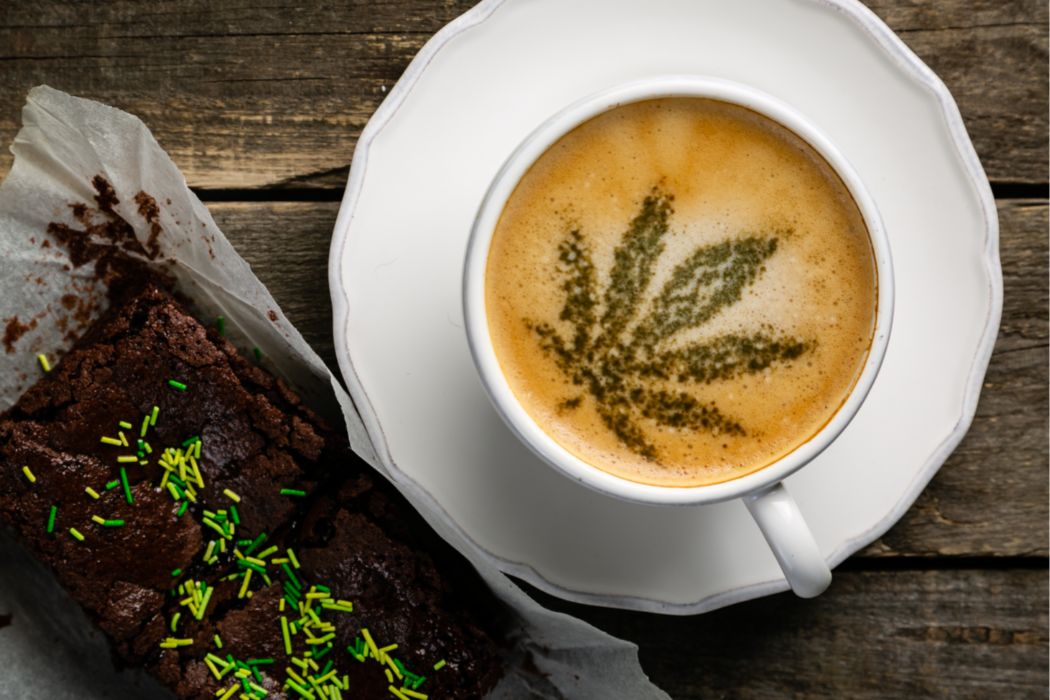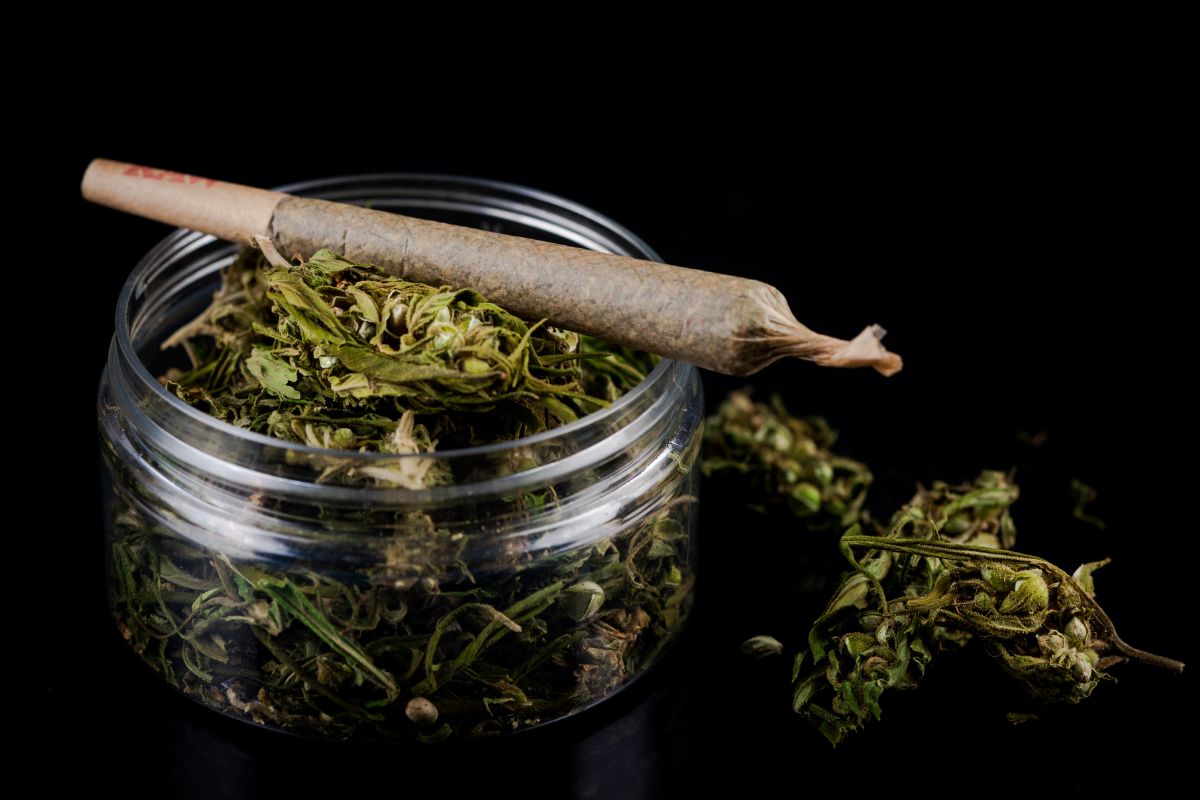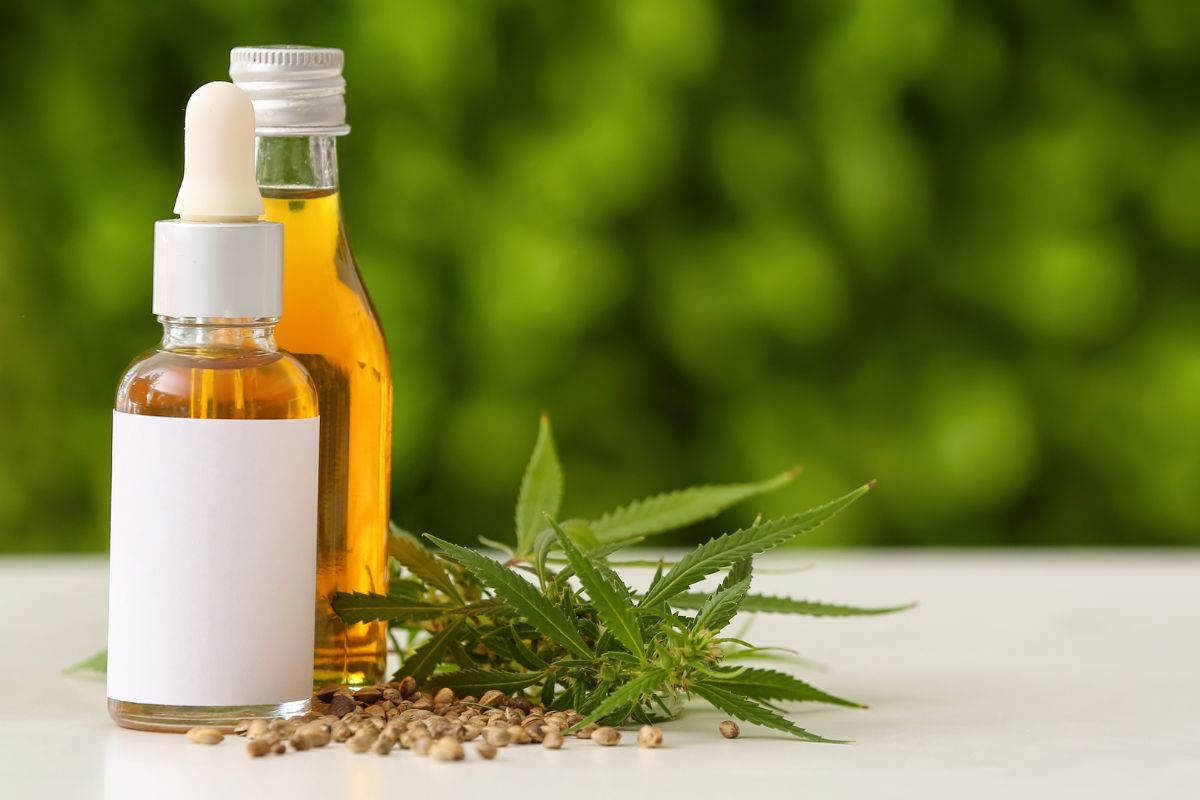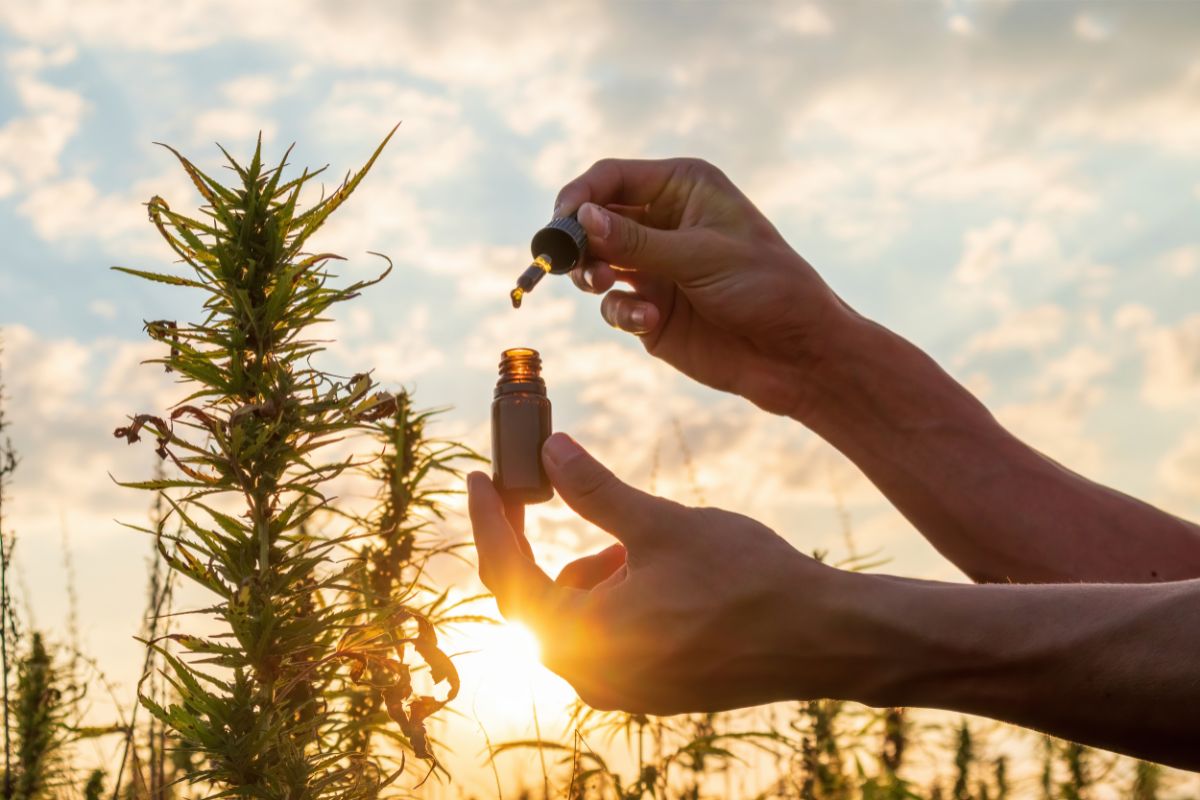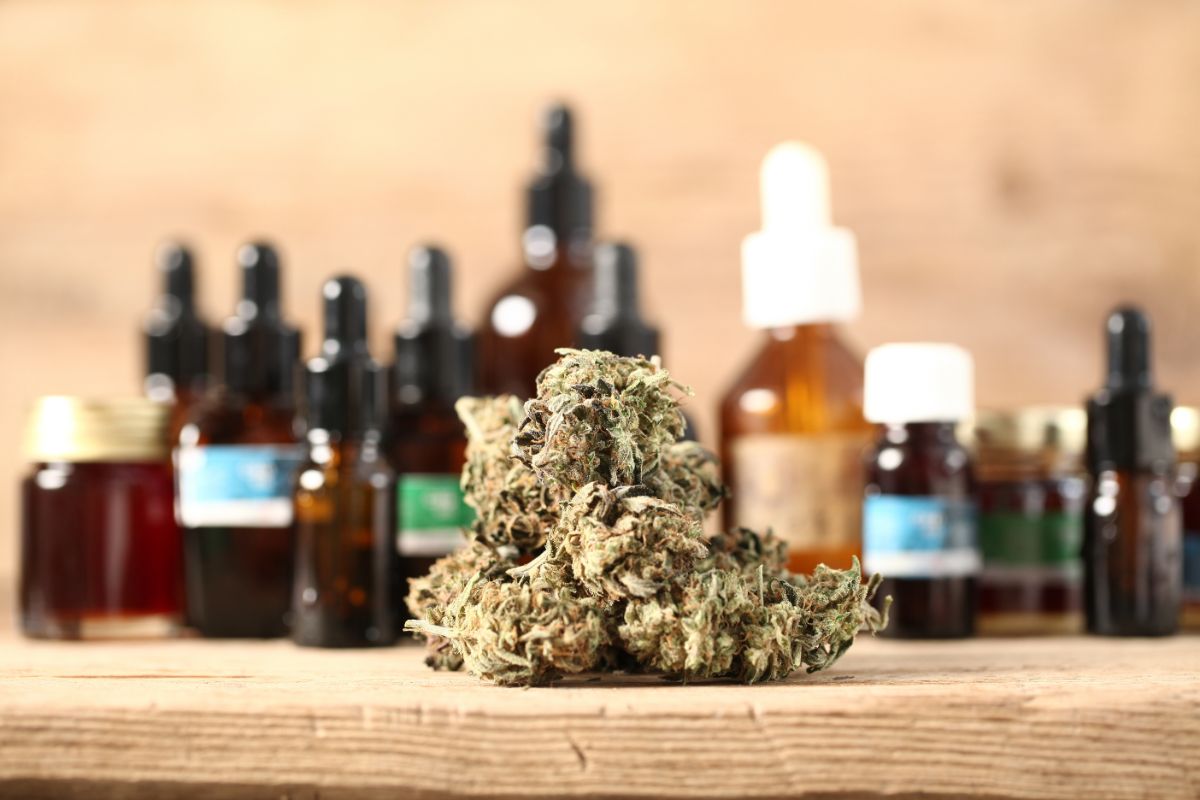Everyone has heard of marijuana, but did you know that there are two main components in this plant that do different things? These two components come in the form of THC, which is the component that gets you high, and CBD, which has lots of medicinal and health benefits.
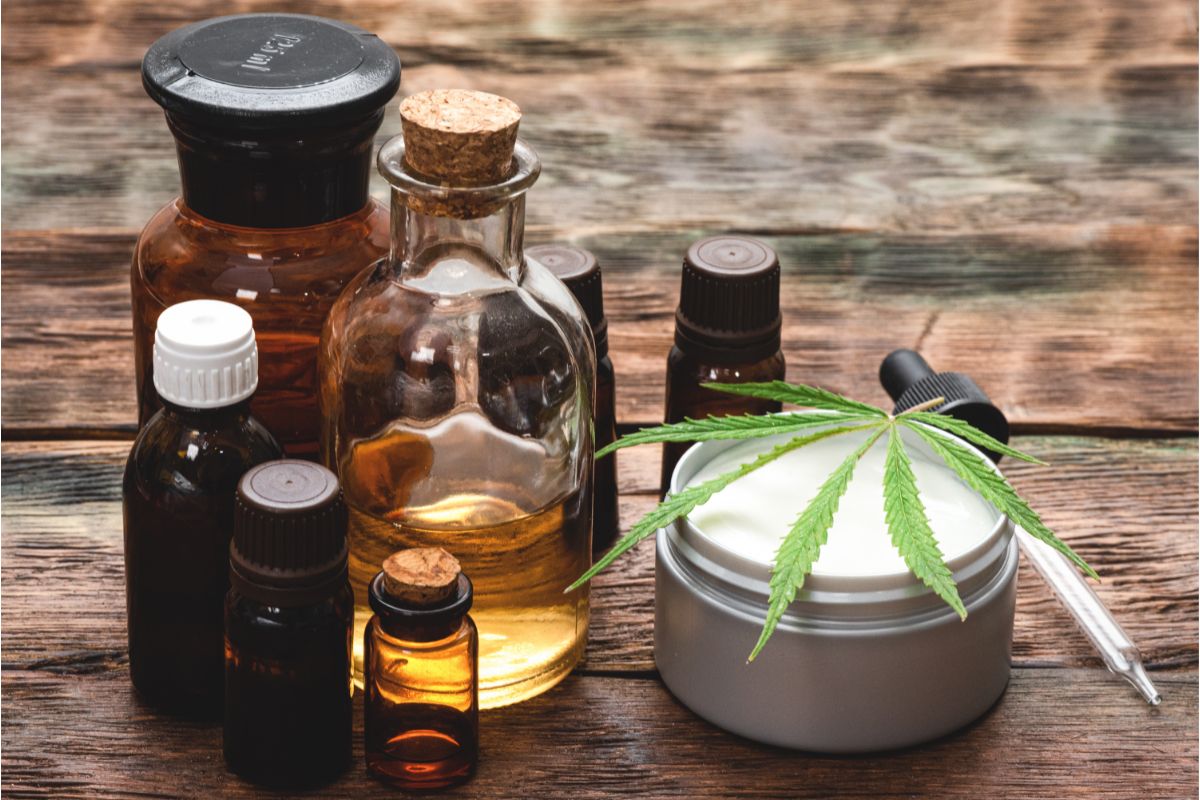
Both CBD and THC are very similar though, so it can get a bit confusing, especially if you don’t know much about either of them. Luckily though, you have come to the right place!
If you’d like to learn more about what CBD and THC are, then read on, because we are going to look at the key differences between them, as well as the side effects and health benefits of each.
What Is CBD?
So, before we get into the differences between each, let’s talk about what each component actually is. CBD, also known as Cannabidiol, is the more widely accepted “legal” part of the plant and it can be extracted from hemp or cannabis, both of which come from the Cannabis sativa (see also: How Does Sativa Make You Feel?)plant.
In order for CBD to be legal, it can only contain a maximum of 0.3% THC. CBD is usually sold in the form of gels, gummies, oils, supplements, extracts, and more.
It has lots of medical and health benefits that are considered to be very effective. CBD doesn’t get you high, but it’s great for tackling pain.
What Is THC?
On the other side, we have THC, also known as delta-9-tetrahydrocannabinol. THC is the main psychoactive compound in cannabis and it is what actually gets people high or “stoned” when they consume cannabis.
It’s more accepted in society now, but in most parts of the world, THC is still illegal, unlike CBD which is widely accepted everywhere. When it comes to consumption, it is usually smoked, but you can also get it in the form of oils, edibles, tinctures, capsules, and more.
Key Differences Between CBD & THC
Of course, the main difference between CBD and THC is that only THC can get you high. There are traces of THC in CBD, but not enough for you to feel that “stoned” feeling. CBD completely lacks the psychoactive effects and properties that THC has.
Another big difference between CBD and THC is the legality. At one point in time, THC was considered illegal practically all over the world, but in more recent years, the legality of THC cannabis has changed.
CBD on the other hand has always had more slack, and it’s legal in a lot more places than THC. The legality of both is always changing though.
CBD usually comes from hemp, which is a different kind of cannabis plant that which produces more THC. There are a few different variations of cannabis plants, and each has its own level of THC and CBD.
Side Effects of CBD & THC
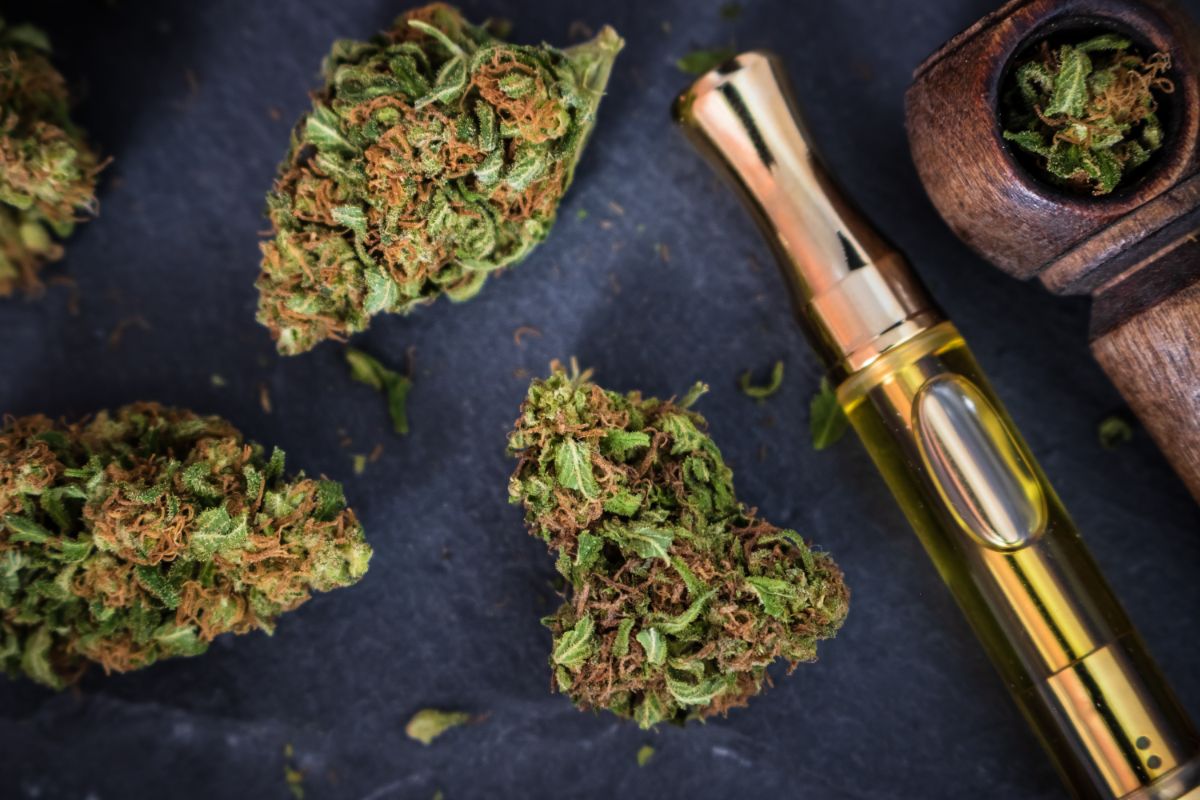
CBD
Unlike THC, the body can handle a lot of CBD. Most side effects associated with CBD are usually caused by other medications you are taking at the same time. Some common and known side effects of CBD include:
- sleepiness and drowsiness
- Weight loss
- Appetite changes
- Fatigue
- Dizziness
THC
THC causes lots of side effects when consumed, but they are usually only temporary. THC is the component that gets you high, so there are a lot more side effects than there are when it comes to CBD. Some of the most common side effects of THC include:
- Slower reaction times
- Tiredness & fatigue
- Dry mouth
- Increased heart rate
- Confusion
- Paranoia
- Memory loss
- Anxiety
- Red eyes
- Coordination problems
- Euphoria
The effects of THC varies from person to person and it also depends on how you consume it and what type of THC plant you are consuming, so this just a broad range of effects.
Health Benefits
There are lots of different health and medicinal benefits that come from both THC and CBD. Let’s have a little look at both now.
CBD
CBD is known for its health and medical benefits and it is possible to get prescription meditation that contains CBD in some parts of the world.
CBD is especially known for its effects in helping to treat and manage epilepsy, but it has other health benefits too. Some other things CBD helps to treat include:
- Anxiety & depression
- Nausea
- Psychosis
- Migraines
- Inflammatory Bowl Disease
- Seizures
- Inflammation
- General pain relief
- Various mental disorders
There is still a lot of research that needs to be conducted when it comes to the medicinal and health benefits of CBD.
There are also more studies being done to see if CBD can help with mood disorders, chronic pain, inflammatory diseases, neurodegenerative diseases like Alzheimer’s and Parkinson’s diseases, and even tumors.
Lots of people believe that CBD has great long-term health benefits, especially when used properly, but more research and concrete evidence are needed to confirm this.
THC
As THC is more fast-acting and temporary in its effects, it is similar to CBD in terms of medical use, but there are some key differences in what it helps with. Some of the main health and medicinal things THC is used for include:
- Anxiety
- Pain
- Muscle Spasticity
- Insomnia & sleep-related issues
- Low appetite
- Nausea
- Glaucoma
There is also research being conducted to see if THC can help with conditions such as obstructive sleep apnea, fibromyalgia, and chronic neuropathic pain, but there have been no conclusive results yet.
It is believed that THC can help with a lot of different conditions and health issues, especially in the short term. More research needs to be done in order to confirm these ideas though.
Conclusion
As you can see, CBD and THC are very similar, but there are important key differences that make it easier to differentiate between them.
CBD is used more for medical purposes, whereas THC is used to get that “high” feeling and is more recreational.
There is still lots of research that needs to be done in regards to both CBD and THC to truly understand it, but we do know that when they are used properly, they can positively affect the user.
- Is CBD Legal In Nebraska? - January 16, 2023
- FabCBD Review - January 16, 2023
- Full Spectrum Vs Broad Spectrum For Anxiety - January 16, 2023
